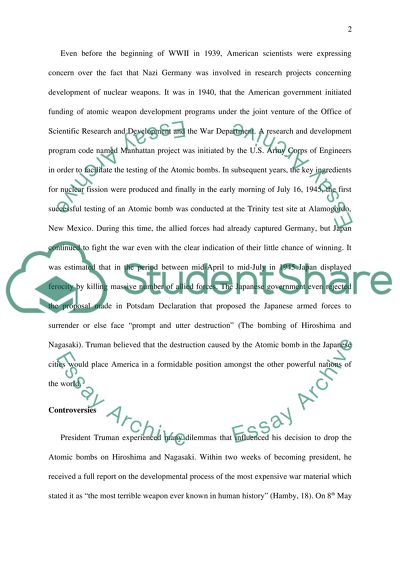Cite this document
(“Trumans Decision regarding the Atomic Bombs Research Paper”, n.d.)
Trumans Decision regarding the Atomic Bombs Research Paper. Retrieved from https://studentshare.org/history/1490652-trumans-decision-regarding-the-atomic-bombs
Trumans Decision regarding the Atomic Bombs Research Paper. Retrieved from https://studentshare.org/history/1490652-trumans-decision-regarding-the-atomic-bombs
(Trumans Decision Regarding the Atomic Bombs Research Paper)
Trumans Decision Regarding the Atomic Bombs Research Paper. https://studentshare.org/history/1490652-trumans-decision-regarding-the-atomic-bombs.
Trumans Decision Regarding the Atomic Bombs Research Paper. https://studentshare.org/history/1490652-trumans-decision-regarding-the-atomic-bombs.
“Trumans Decision Regarding the Atomic Bombs Research Paper”, n.d. https://studentshare.org/history/1490652-trumans-decision-regarding-the-atomic-bombs.


